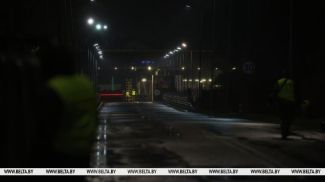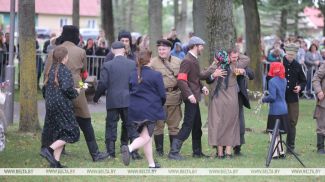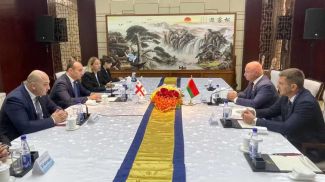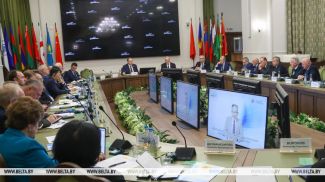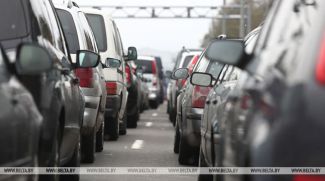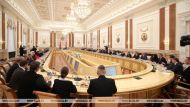MINSK, 27 February (BelTA) – Belarus is interested in Russia's experience in such matters as support for talented youth and predicting demand for manpower. Belarusian Education Minister Igor Karpenko made the statement during the latest joint session of the board of the Education Ministry, the State Science and Technology Committee of Belarus, and the Russian Education and Science Ministry, BelTA has learned.
Participants of the session discussed a broad range of matters relating to education quality in Belarus and Russia, the implementation of the state youth policy, including support for talented youth, children, and teenagers. “I should note that Russia has made strides in this matter. We were strongly impressed by the work of the educational center Sirius in Sochi. I think we could establish cooperation with this center possibly via some joint programs. Russia's experience is interesting for us. We have to create a technopark for children in Belarus where early career guidance will be available for young people, where they will be able to get involved in their future careers from early on,” said Igor Karpenko.
The official continued: “We are also interested in Russia's experience in predicting demand for manpower. We are busy creating a new prediction system. The Economy Ministry and the Labor and Social Protection Ministry will be responsible for it. The Education Ministry will act as a contractor for implementing the education tasks the real economy sector will set for us.”
Ways to improve the operation of the Belarusian-Russian University in Mogilev were also discussed. “The development of infrastructure of this institution is particularly important for implementing the University 3.0 model. It is also part of the experimental program we have determined by the relevant Education Ministry executive order. Certainly, we need new equipment, new science-intensive labs, which will allow assimilating R&D results in the manufacturing sector, commercializing results of scientific efforts, and thus enabling conditions for the development of an innovative economy,” added Igor Karpenko.
The official continued: “Consistent and task-oriented work is in progress in Belarus and Russia with a view to enabling equal rights of citizens to getting education and forming common educational space. We have already achieved certain results. Forming an innovative environment is now particularly important for Belarus and Russia. The development of coordinated promising guidelines in the area of education will help bring our countries closer to this goal. We should primarily focus on education quality. Everything matters in this regard: from choosing the future profession early to objectively evaluating results of training of graduates. We know that Russia has accumulated some experience in this regard, including the development of a qualification system and the creation of a system of professional standards. We have made some headway, too. The sharing of the best practices will contribute to the development of our education systems.”
Russian Education and Science Minister Olga Vasilyeva noted that a commission on forming common scientific and technological space had been created as part of the Union State of Belarus and Russia. “Its operation is geared towards determining priority avenues of Belarus-Russia innovative cooperation. It allows stepping up the development and implementation of joint R&D programs,” she added.
The joint session of the board of the Education Ministry, the State Science and Technology Committee of Belarus, and the Russian Education and Science Ministry took place in Minsk on 27 February. Participants of the meeting discussed the fulfillment of top-priority tasks concerning the development of the Union State of Belarus and Russia in the area of education, science, and youth policy. They discussed progress in implementing the state policy on education in Belarus and Russia and promising avenues in forming the common educational space.




